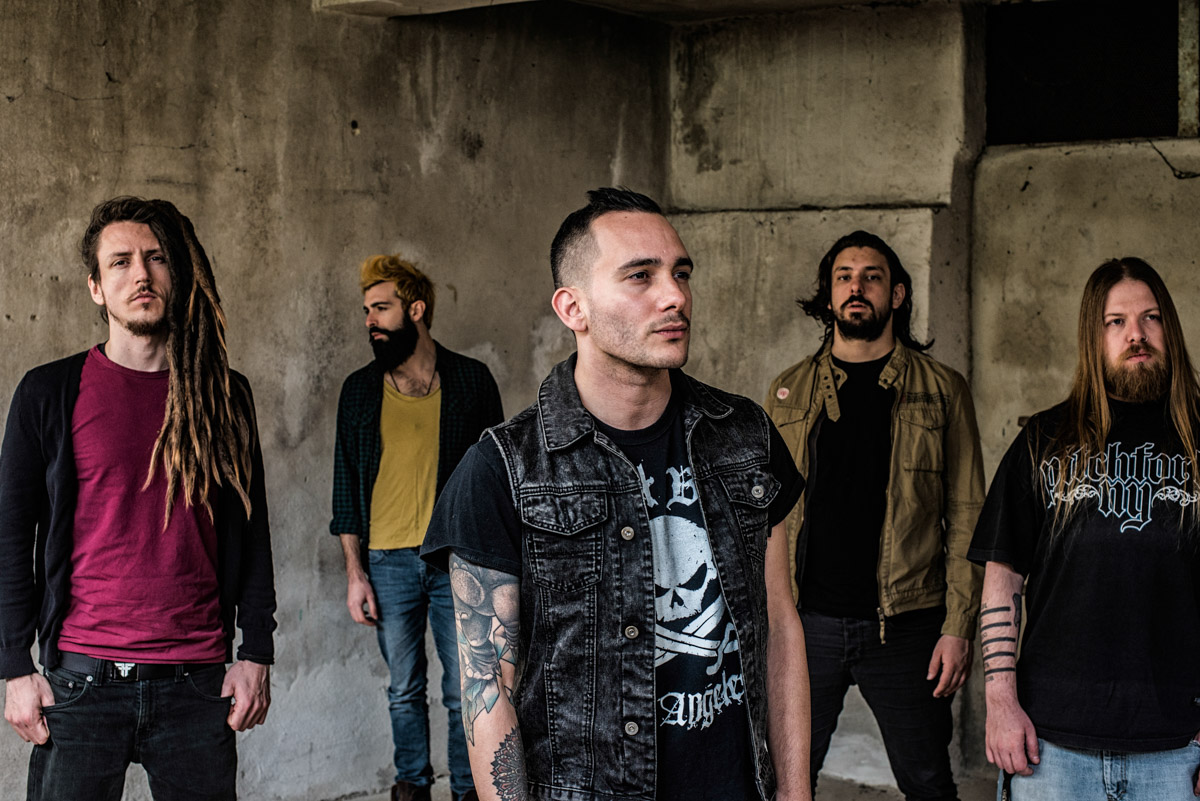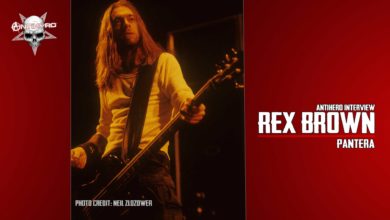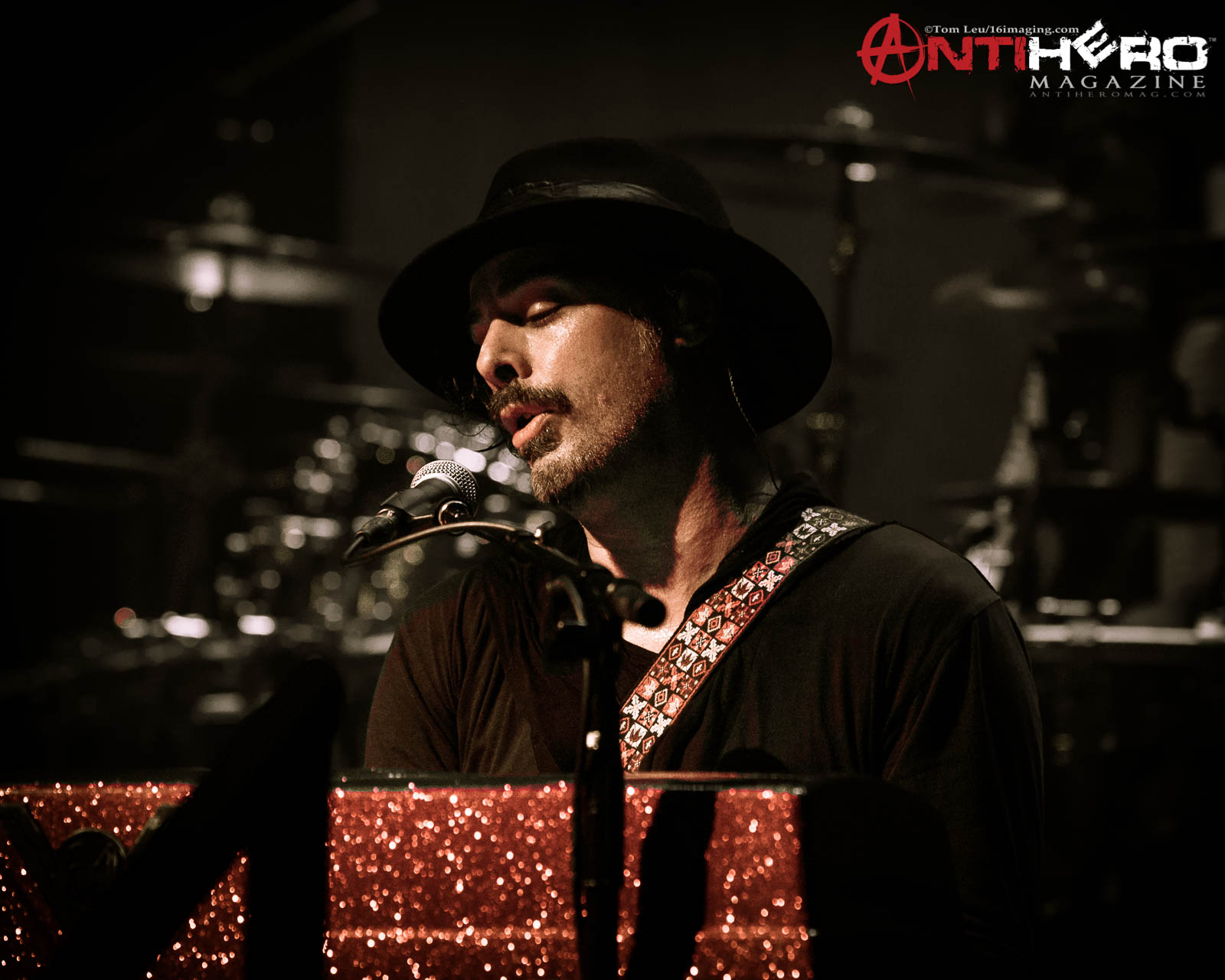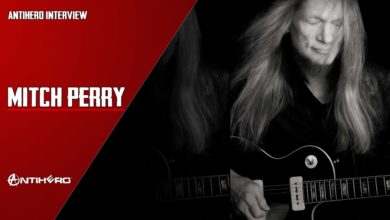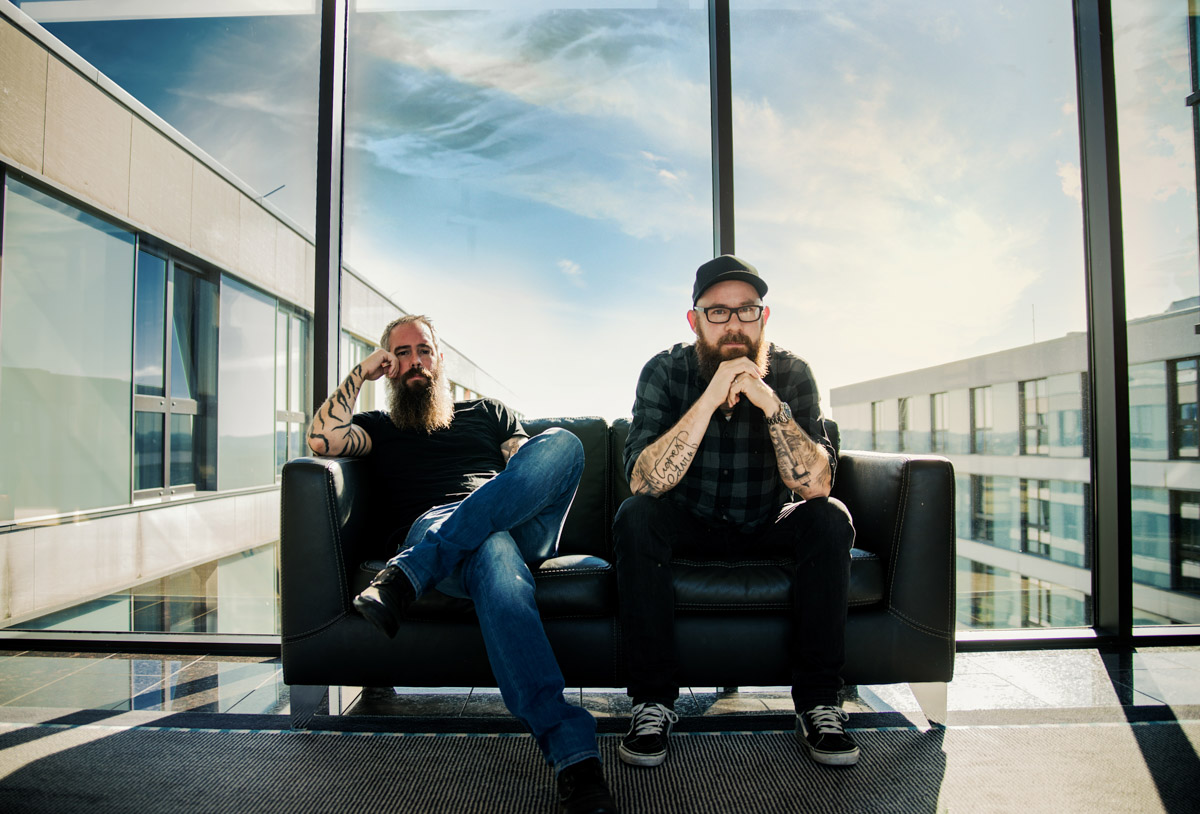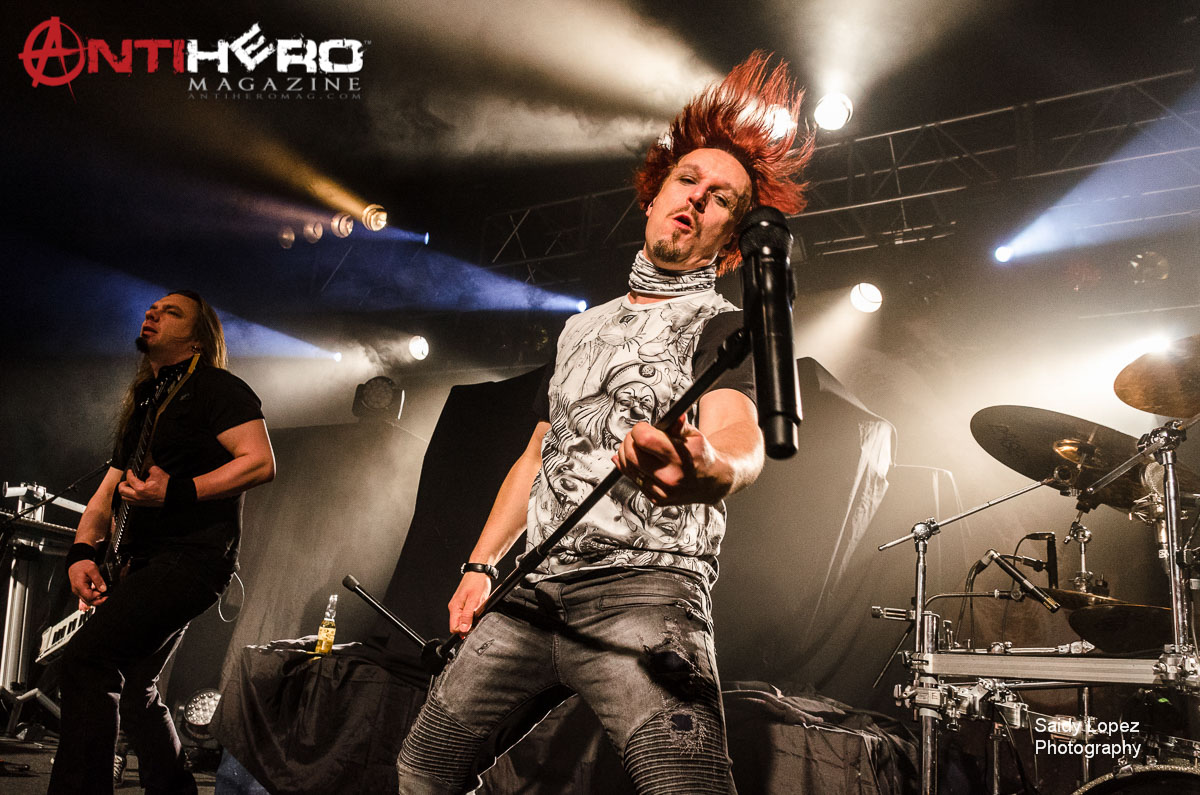“You can try to put Destrage in a box but you will never succeed. Words such as “progressive”, “cinematic”, “mathcore”, “technical” and “groove-laden”, could be thrown at them, but really the only one you need is Destrage, for they are in a category of their own making. This has never been more true than on A Means To No End, the fourth full-length from the Milan, Italy-based 5-piece, which was released last October via Metal Blade Records. Riveting from start to finish, it leads the listener through an emotionally-charged labyrinth of complex yet catchy melody and muscle, following nobody’s rules, and it stands out as one of the truly unique releases of 2016.” – Metal Blade
Mark Dean: The media generally wants to label bands, put them in little boxes. They sound like this, they sound like that. Destrage are not easy to categorise. How you describe what you do?
Ralph Salati: Our music you mean? It’s hard to put a label on it. But basically, to give a description of the music, it is what we really like to do the most. So, if we have ideas that goes out from what we did in the past, it’s not a big problem for us. In the end, the songs, we have to like the songs. So, we have no limits. We go beyond the labels and limits. I mean, we prefer to do something that works good for us. So, I guess it’s hard to put it in a category, which also could be bad because sometimes being called a label…
Mark Dean: Has it made it more difficult to get gigs, get a record deal and different things? Because you don’t know what you’re watching.
Ralph Salati: That’s what I mean. It’s good for us to make music that we really love, but not always as easy to sell our products. If you see a band as a product. So, because it’s not easy to put in line, a category, you know?
Mark Dean: What about your fans then? What are they like?
Ralph Salati: I don’t know what they like more from us, maybe the party side. We try to be…Every show is always a party. We don’t want it to be like something serious and that’s it. We like to enjoy with our fans, with the audience, so maybe they like this side and they like maybe some of the technical sides of the music, some of the groovy parts. Maybe it’s some of the metalcore that we still have in our DNA in some way. I think it’s about that, but I have to ask. 
Mark Dean: But your albums change. Each one is obviously a progression, you’re still moving, you’re changing, you’re evolving.
Ralph Salati: We’re still moving and evolving, but of course following which our taste is and which is our age. After a long time that you play together even little details come out from when you’re in a room and you work together and in your life not everything is going well or is going pretty good, you reflect that into your work. I think it happens in every type of work. In the acoustic kind of work, it’s even more accentuated in some way. So, I think it’s easy to make changes in your musical decisions, and of course the taste tends to change during the years.
We grew up. We like different stuff. We see what we listen to in a different way, so this is surely reflected in our music. But I must say, in my opinion I see from the first album to the last one the fourth, I see an evolution which is…I mean the last one is different from the first one, but I can see a line which is right in some way and I can see a different type of evolution in our music.
Mark Dean: What sort of level are you guys at? Are you full-time musicians? Do you still have to work other jobs? Other bands say that it’s not enough. It doesn’t pay the bills.
Ralph Salati: Me and Federico, the drummer, we work in music, we teach it, we do sessions, we do shows for other bands. We work a lot with Destrage. So basically, we live with music. But not just with Destrage. It’s hard today. So, you must grow more and more.
Mark Dean: Do you do music then with other bands?
Ralph Salati: Well, we have other side projects. I am working at the moment and I work as a producer as well with bands from other kinds of music too. So, you have to do what it takes, yeah.
Mark Dean: The most recent album, A Means To No End, there are a lot of different elements going on sound-wise. I just wondered how you find replicating those on stage. Is that difficult?
Ralph Salati: I’ll tell you the truth. We started from jamming together in a room.
Mark Dean: A lot of bands don’t even do that anymore.
Ralph Salati: I know. Not anymore. Right. Which is kind of sad, but I understand, because you usually try to get the idea down on the computer and so it’s easy to do single ideas and then put together the whole thing. But we started jamming a lot. So, it sounds very live and I think it was the easiest one to replicate live. Even, of course, you have details that looks hard. The parts that are difficult you must focus on that.
Mark Dean: Did it use anything different? I read something about like a bowl of water or something. What was that about? I read something about objects being used. That was why I was asking. When you play live you don’t have all of that.
Ralph Salati: Of course. All the percussion…Those are like percussions. We had a super guy who is a percussionist who played, who made his own instruments. Like bottles of water.
Mark Dean: How do you cope? I mean we’ve already illustrated how the music industry is difficult to make a living. How do you deal with the difficulties and obstacles, maybe going back and trying to get your first record deal and trying to sell the band? I mean when people don’t know you.
Ralph Salati: You mean more like on the selling side? It’s hard to manage this of course. As I told you before we try to do what we really believe in and we hope that the people follow this attempt to do music in this way.
Mark Dean: You’re with a big label now. Did the record label come to you?
Ralph Salati: We had a record ourselves with the previous album, with Are You Kidding Me? No, then we sent to different labels and Metal Blade was the first to show interest in us.
Mark Dean: It’s a nice one to be able to go and say yes to, isn’t it? Because they’ve got a long history.
Ralph Salati: It really is. Yeah, exactly. There’s long history.
Mark Dean: Even with Metal Blade people will tend to be “that’s just one sort of music,” but over the years they’ve released a lot of different things.
Ralph Salati: Lots of broad stuff. So, I really like the politics behind Metal Blade. I’m happy to be in the family really. 
Mark Dean: What in your life are you most proud of? Something that you’ve achieved as a musician or something outside.
Ralph Salati: Ah, well in a way I’m proud of living with my guitar, my music, of making music and touring. We didn’t tour that much, but I like to be around and playing. That’s maybe one of the best things that can happen in my life because it was a dream of course. So, I think it’s a dream for many people. I can tell I’m satisfied with it. You know what, another thing which is good for me is that I really like to teach. I don’t do it just as a side work. I really enjoy it.
Mark Dean: It’s another outlet creatively for you.
Ralph Salati: Exactly. So, I feel good when I do it. It’s not like something, “oh come on I have to go to school.” No, it’s a good thing. So, I’m enjoying that. I live better with the rest of my life.
Mark Dean: Who’s the most inspiring musician that you’ve worked with, maybe not even in this band? Somebody that’s inspired you that you learned from.
Ralph Salati: Well, to me David Gilmour for me. He’s one of the most inspiring things in general. I’m a big fan of their music. The good thing is we listen to very different stuff.
Mark Dean: And that’s what creates what you do isn’t it? All the different elements.
Ralph Salati: Yes. Sure. You can tell. And I must say I work pretty good with Matt, the guitarist.
Mark Dean: What’s next for the band once this tour’s over?
Ralph Salati: Once this tour is over maybe we’ll start talking about a new album, about writing some new music.
Mark Dean: Are you doing any festivals this summer?
Ralph Salati: Not really. We wanted to stop for a bit and try to project some new stuff. We really want to do something new.
Mark Dean: Just a final one then. Who would you like to interview? Maybe not even a musician, a personal hero.
Ralph Salati: Okay, sure. Maybe I would have liked to interview Robin Williams, but now it’s not anymore possible. Or maybe I don’t know in music, I think maybe Little Richie would be nice. There are many people I would like to interview.
Mark Dean: That’s great. Thank you very much.
Ralph Salati: Thank you.

